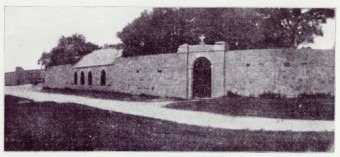Search Results for 'Edward VI'
3 results found.
Broken images, broken heritage
Throughout history, nearly every religion of consequence has displayed a tension between austerity and exuberance. In Christianity this tension shows itself in the contrast between, say, the unadorned, white-washed chapel and the imposing magnificence of a great medieval cathedral.
The Augustinians and Forthill

The Augustinians have been associated with Galway since the year 1500. Their first convent, or priory, was built on Fort Hill between 1506 and 1508. Its patroness was Margaret Athy who was the wife of the then mayor, Stephen Lynch. He sailed for Spain in search of a cargo of rich wines, and when he returned, he was astonished to see the graceful outline of a new church, with tower and tapering spire, on the elevated promontory that was Fort Hill. Not one stone of it had been laid when he left the city.
Galway vintners

During the reign of Edward VI, when the Puritans controlled Galway, it was provided that “No man should keep an Ale House without being licensed, under penalty of three days imprisonment and a fine of twenty shillings”. It was added: “But because many Ale House keepers in those days were not able to pay that Forfeiture, and it was seldom levied by reasons of poverty, which made people unwilling to prevent the offenders.” Therefore a further punishment was added by statute during the reign of Charles I which not only inflicted the forfeiture of 20 shillings to the use of the poor, to be levied by the constable or church warden, by warrant of a justice before whom the offence was proved, and which distress may be sold three days afterwards; but it provided that if no distress could be taken, the justice should deliver the offender to the constable to be whipped. For the second offence, the offender was to be committed to the House of Correction for a month. A married woman who kept an ale house without licence made her husband liable for punishment.

